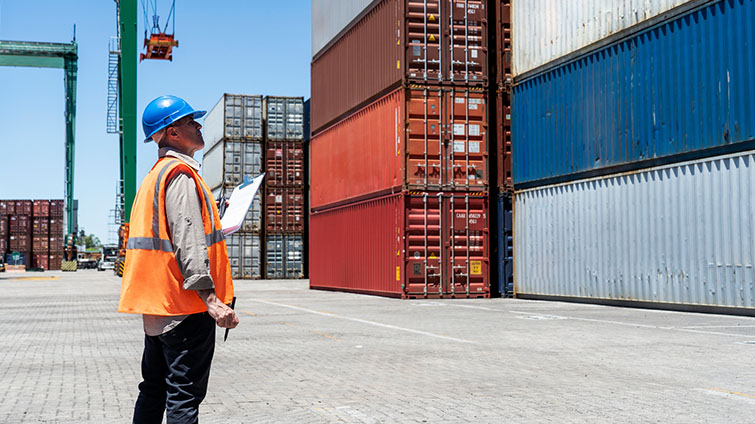New trade deals reached with China, Malaysia, Thailand and Vietnam
Published: Thursday, November 06, 2025 | 08:00 AM CDT
United States and China reach new trade deal
An interim U.S. agreement with China announced in writing 1 November provided some relief for importers.
- Sets the U.S. reciprocal tariff at 10% for a year instead of the tariff rising to 34% on 10 November
- Decreases the U.S. IEEPA fentanyl tariff from 20% to 10%
- Averts the threat of an additional 100% U.S. tariff that was threatened to go into effect on 1 November, 2025
- Suspends U.S. port fees on Chinese vessels that started 14 October and the retaliatory port fees China announced on U.S.-flagged and partially U.S.-owned vessels
- Suspends the export controls China had announced on rare earth elements that are critical for electronics, magnets and batteries widely used in manufacturing
- Extends certain Section 301 tariff exclusions that were due to expire on 29 November, 2025, until 10 November 2026
These measures are scheduled to go into effect 10 November. See the White House fact sheet for more details.
Trade deals announced with three more Asian countries
Malaysia, Thailand and Vietnam agreed to eliminate tariffs on most U.S. goods. Imports to the United States from Malaysia and Thailand will face a 19% tariff and those from Vietnam 20%. In each case, exceptions apply.
Tariffs on Canadian goods could increase
On 25 October, the U.S. administration said it would add 10% to tariffs on goods from Canada. It’s unclear whether this measure will take effect or which goods will be affected. Most Canadian exports to the United States are exempt from tariffs under the United States-Mexico-Canada Agreement (USMCA). Goods not covered by USMCA have been subject to a 35% tariff since August 2025.
U.S. Supreme Court hears case challenging reciprocal tariffs
On 5 November, the U.S. Supreme Court heard oral arguments in the case challenging the president's authority to impose tariffs by declaring a national emergency. The essential question is whether tariff authority rests with Congress or if the International Emergency Economic Powers Act (IEPPA) allows the president to set tariff rates. Multiple lower courts have ruled against the president.
A decision is expected in early to mid-December, although the court will have until the end of its term next July to issue a ruling. If the court rules for the president, reciprocal tariffs and tariffs related to the U.S. administration’s efforts to reduce the flow of fentanyl would remain in place. If the court rules the president has exceeded his authority, it raises questions about a potential refund process for tariffs already paid.
A robust or prompt refund process is not guaranteed. A ruling could specify retroactive refunds or only prevent tariffs from being applied to future deliveries. If the ruling does address refunds, these could occur in one of two ways: Either U.S. Customs would process the refunds automatically or customs brokers might need to undertake additional work to secure them.
If tariff authority under IEPPA is struck down, we also expect the administration to continue negotiating trade deals with individual countries and to seek broad-based tariffs under Section 232 and Section 301 authorities. These are well-established tools that have survived previous court challenges and allow tariffs to be imposed on goods from specific countries and on specific commodities regardless of their origin.
Customs brokerage and trade compliance will continue to be critical tools in supply chain competitiveness.
Guidance issued on duty offset for imported auto parts
U.S. Customs and Border Protection published guidance on the import adjustment offset for importers who have been granted one by the Department of Commerce. The import adjustment offset amount may only be used to offset the Section 232 auto parts 25% tariff and up to the amount granted to the importer.
The offset licence number from the Department of Commerce should also be provided for the customs entry clearance. Importers may submit post summary corrections to claim the import adjustment offset and request a refund of any Section 232 auto parts duties paid on previous entries.
CBP denies highest number of deliveries subject to UFLPA enforcement
Over 5,800 deliveries were denied U.S. entry in January through September of this year due to Uyghur Forced Labour Prevention Act (UFLPA) enforcement—a record high compared to the same period from fiscal years 2023 and 2024. Most of the denied deliveries were from the automotive and aerospace industries, totaling 5,725 deliveries. Read our Guide to Forced Labour Compliance to understand your responsibilities and prevent potential delivery delays at the border.
Visit our Trade & Tariff Insights page for the latest news, insights, perspectives and resources from our customs and trade policy experts.
 Download slides
Download slides